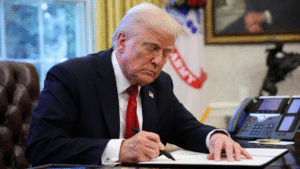Inside India’s VPN Crackdown: What New Policies Mean for Privacy and Digital Freedom
In recent years, India has taken a more assertive approach to regulating digital infrastructure — and Virtual Private Networks (VPNs) are now in the government’s crosshairs. A 2022 directive from the Indian Computer Emergency Response Team (CERT-In) requiring VPN providers to collect and store user data has sparked debate across tech circles, civil liberties groups, and global privacy advocates.
As the world’s largest democracy grapples with cybersecurity and misinformation, the question remains: are India’s VPN policies protecting its citizens — or undermining their digital freedom?
What Does the New VPN Policy Require?
In April 2022, CERT-In issued a directive mandating that all VPN providers operating in India must:
- Collect and store customer data — including IP addresses, email IDs, and usage patterns — for at least 5 years
- Report cybersecurity incidents within 6 hours
- Maintain logs that could be handed over to authorities upon request
These rules apply to data centers, cloud service providers, and crypto exchanges as well — sparking widespread concerns over mass surveillance and the erosion of online anonymity.
Source: CERT-In Official Website
Privacy Concerns and Global Backlash
Many VPN companies — especially those based in privacy-friendly jurisdictions — responded swiftly. Major players like **ExpressVPN**, **NordVPN**, and **Surfshark** removed their servers from India, citing incompatibility with their strict no-logs policies.
Critics argue that:
- The policy undermines user privacy and trust
- It could be used to monitor activists, journalists, and political dissidents
- It risks driving users toward unsafe, unregulated VPN services or illegal dark web alternatives
The Internet Freedom Foundation (IFF) and international bodies like the Electronic Frontier Foundation (EFF) have warned that the new regulations set a dangerous precedent for democracies.
The Government’s Justification: National Security and Cybercrime
Indian officials have defended the policy, citing a growing number of cyberattacks, online fraud, and misinformation campaigns. The government argues that VPN anonymity has been exploited by bad actors — including cybercriminals and terrorist networks — making stronger oversight essential.
Minister of State for Electronics and IT, Rajeev Chandrasekhar, stated: \”We are not asking for access to content. We are asking for metadata that is essential for security investigations.\”
However, many cybersecurity experts argue that the policy lacks proportionality and sufficient checks to prevent misuse.
Impact on Indian Users and Businesses
The new VPN rules are creating ripple effects across India’s digital ecosystem:
- Consumers: Face fewer choices for secure and anonymous internet access
- Businesses: Especially remote teams and startups that rely on VPNs for data security, are now navigating legal uncertainty
- Tech providers: Some global companies are reevaluating their presence in India due to compliance burdens
Ironically, experts suggest that these policies may weaken national cybersecurity by pushing users toward unsafe or foreign-operated services with less transparency.
What’s Next? Calls for Reform and Legal Clarity
Digital rights groups and industry associations continue to push for:
- A privacy-first, rights-based approach to cybersecurity
- Greater transparency around government data requests
- Judicial oversight and due process for surveillance powers
Meanwhile, India’s long-awaited **Personal Data Protection Bill** (expected to pass soon) may offer more clarity on how VPN data fits into the broader legal framework around consent, storage, and cross-border flows.
Conclusion
India’s VPN policy marks a significant moment in the country’s digital journey — one that pits national security concerns against individual rights and online freedoms. As the global conversation around privacy and surveillance evolves, how India navigates this balance will have implications far beyond its borders.
For now, one thing is certain: the VPN is no longer just a privacy tool — it\’s a political flashpoint in the battle for control over the digital future.





Post Comment